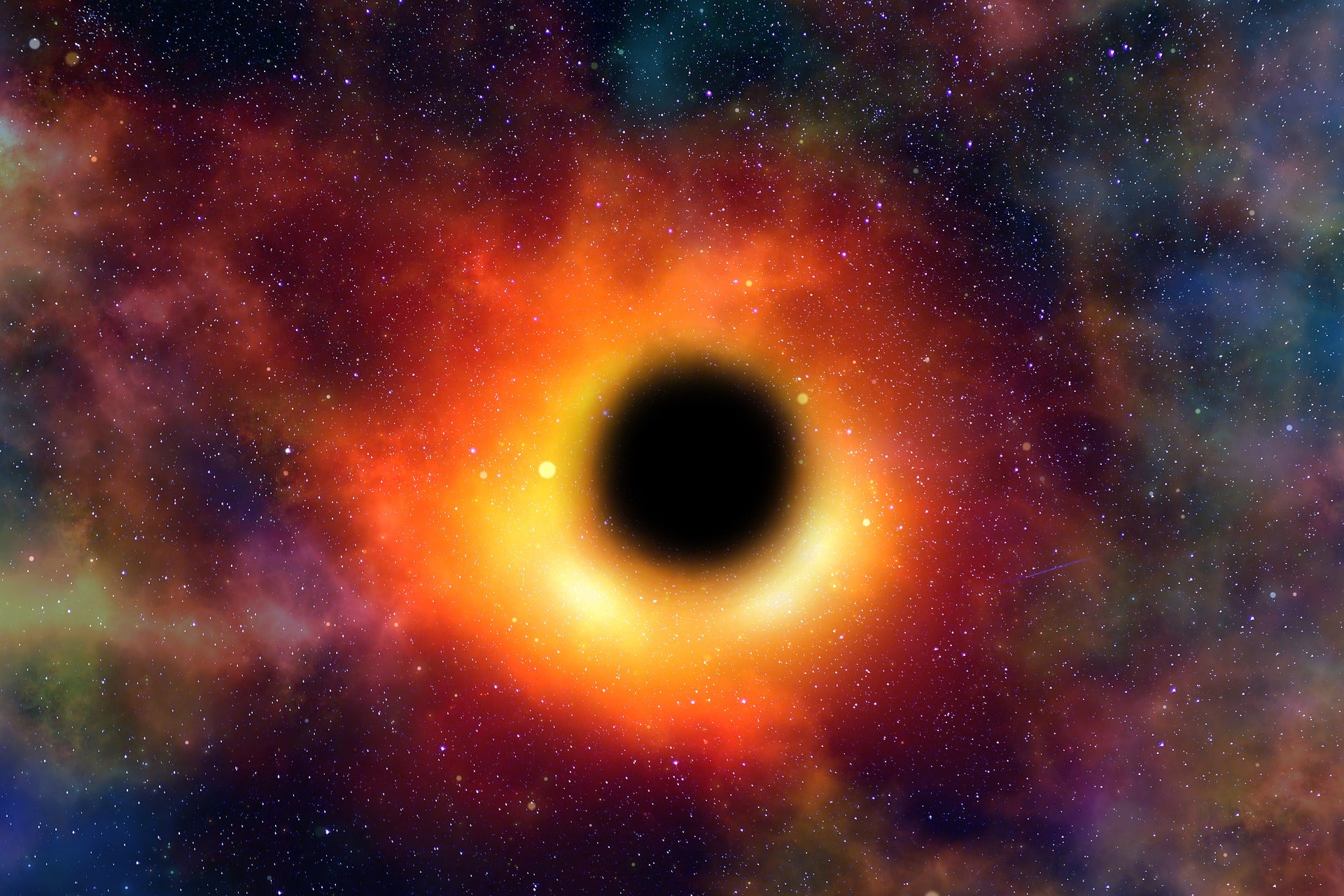Astronomers finally know how many black holes there are in the universe
Astrophysicists estimate there could be 40 trillion black holes in our enormous universe

A new study has calculated the number of black holes in the universe.
Astrophysicists from the International School of Advanced Studies (SISSA) in Italy have estimated that there could be 40 trillion – a four followed by 13 zeros – black holes in the universe.
It is thought that this could make up one per cent of all the normal matter in the universe, a sphere thought to have a diameter of around 90 billions light years.
“The innovative character of this work is in the coupling of a detailed model of stellar and binary evolution with advanced recipes for star formation and metal enrichment in individual galaxies,” said Alex Sicilia, first author of the study, which was published in The Astrophysical Journal.
This is one of the first, and one of the most robust, ab initio computation of the stellar black hole mass function across cosmic history.”
By estimating the history of enormous stars in the universe, scientists can calculate how many black holes ought to be in a given space.
This could help them unlock how supermassive black holes – like the one in the centre of our galaxy – could grow and evolve.
The scientists, in their estimation, only included black holes that evolved from single or binary stars, as well as accounting for black holes merging with each other using gravitational wave data. When such an event happens, they can have an even greater mass.
This allowed them to calculate how often black holes with masses between five and 160 times that of our Sun were formed since the universe began.
By calculating the birthrate over time the researchers are able to estimate the number of stellar-mass black holes in the early Universe – a figure that is of interest to scientists due to the detection of black holes incredibly soon after the Big Bang.
What remains unclear, however, is how these black holes grew so quickly. Scientists recently discovered a “mini” black hole in a small galaxy around 110 million light years away.
One explanation for their rapid growth is that the early universe was seeded with black holes containing tens of thousands of solar masses when they were created — perhaps from the collapse of gigantic clouds of gas and dust.
Nasa also found a black hole ‘giving birth’ to stars in a nearby dwarf galaxy. This suggests that black holes can create stars, as well as devour them, and could help us understand where the voids initially came from.
Join our commenting forum
Join thought-provoking conversations, follow other Independent readers and see their replies
Comments
Bookmark popover
Removed from bookmarks